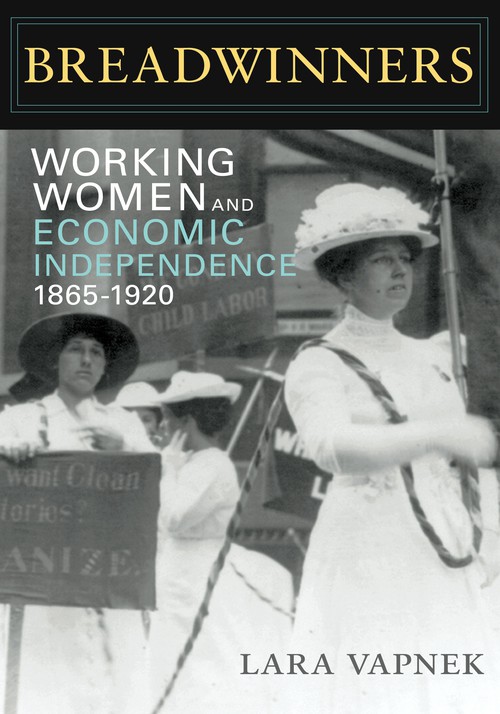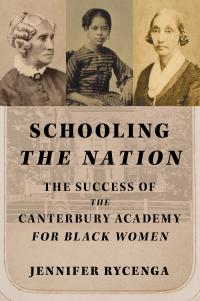
Breadwinners
Cloth: 11/23/2009
About the Book
Lara Vapnek tells the story of American labor feminism from the end of the Civil War through the winning of woman suffrage. During this period, working women in the nation's industrializing cities launched a series of campaigns to gain economic equality and political power. This book shows how working women pursued equality by claiming new identities as citizens and as breadwinners.Analyzing disjunctions between middle-class and working-class women's ideas of independence, Vapnek highlights the agendas for change advanced by leaders such as Jennie Collins, Leonora O'Reilly, and Helen Campbell and organizations such as the National Consumers' League, the Women's Educational and Industrial Union, and the Women's Trade Union League. Locating households as important sites of class conflict, Breadwinners recovers the class and gender politics behind the marginalization of domestic workers from labor reform while documenting the ways in which working-class women raised their voices on their own behalf.
About the Author
Lara Vapnek is a professor of history at St. John's University. She is the author of Elizabeth Gurley Flynn: Modern American Revolutionary.Reviews
"Reads almost like a prequel to When Everything Changed, a history of American women since 1960 by Gail Collins."--The New York Times"A quite nuanced discussion of the impact of gender on the forging of class identities from the Gilded Age into the Progressive Era. . . . Highly Recommended"--Choice
"[Vapnek] writes with directness about the class rifts that emerged in social movements and the difficulties of women workers trying to keep their own organizations from being hijacked by more affluent supporters."--Feminist Review blog
"Illuminates the strong connections between labor rights and political rights and enhances our understanding of the promises and the perils of cross-class organizing."--Journal of American History
"I know of no other research that renders so fully laboring women's advocacy for inclusion as homesteaders and independent landowners and for access to skilled, higher-paying jobs. . . . One of the most revealing studies that I have read recently."--The Journal of the Gilded Age and Progressive Era
Blurbs
"This work is the best history we have of the class tension between elite women reformers and wage-earning women. Vapnek adds a strong, new perspective to interpretive debates over the meaning of dependence, independence, protections, rights, and citizenship."--Eileen Boris, Hull Professor and Chair, Department of Feminist Studies, University of California, Santa Barbara
"A stirring account of the independent spirit that led women to seek self-reliance in the labor market. Lara Vapnek lucidly illustrates how a group of courageous women rejected poorly paid work and domestic service jobs to gain financial autonomy and the right to vote. This book adds a significant dimension to our understanding of the lives and aspirations of women of all classes."--Alice Kessler-Harris, R. Gordon Hoxie Professor of American History, Columbia University
"So far, the struggles of nineteenth-century women seeking independence through paid work has largely focused on the middle class. Lara Vapnek's attention to the efforts of working class women to escape the dependence of domestic work fills in a huge gap in this engrossing story."--Susan Armitage, coeditor of Writing the Range: Race, Class, and Culture in the Women's West










